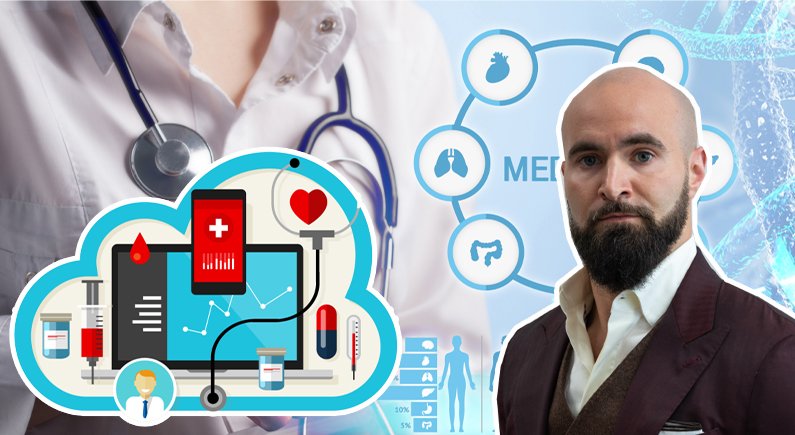- Roadshow to Rome
- Awards
- Exhibitors
- Speakers
- Media Partners
- News

Known in the industry as “Mister MedTech”, a veteran of the MedTech industry, Giovanni Lauricella serves as a connector of MedTech professionals to insights, people, and money. Laetitia Bradamante caught up with Lauricella for an exclusive interview to discuss all things MedTech, and its importance moving forward in a world with COVID-19
WHAT DOES MISTER MEDTECH DO?
We only focus on MedTech start-ups, primarily focusing on a team building capacity. When we focus and build these smaller organizations, we have a lot of exposure to the investor world. By building those teams, we can be hired by the venture capitalists to find talent. Or, we can be brought in to build on a project and hire everything from early stage R&D to commercialization. Additionally, we offer the ability to make introductions to investors, early stage seed, and angel investors or venture capitalists if the profile of the start-up matches well with someone in our investor network.
THE IMPORTANCE OF PROACTIVE HEALTHCARE
We’re in an age right now where data is gold, we’re in a much more data centric and data focused environment; machine learning, AI, all these abilities to massively take a robust amount of data and then actually have a very educated society. The ability to have a diagnostic that is going to predict your Alzheimer’s, future heart attack, cancer and your diagnosis stage, imagine if these things are able to be diagnosed before they even happened? If anything, COVID-19 has made what we thought was going to happen in the future happen now. While there will always be reactive healthcare, when we have big data, innovation that’s around data, and companies that are more data focused now than they are product focused, you’re going to be having an opportunity to get involved in proactive healthcare and no longer reactive healthcare.
We’re in an age right now where data is gold, we’re in a much more data centric and data focused environment; machine learning, AI, all these abilities to massively take a robust amount of data and then actually have a very educated society.
COVID-19 AS AN ACCELERATOR FOR ROBOTICS IN THE MEDICAL FIELD
Robotics is, I think, for sure here to stay with the with the whole process of us not being able to physically touch anymore. Robotics was here long before COVID-19, but now it’s once again exacerbated the whole process of not touching the patient and now being able to do it with a 5G network like what Corindus is doing with Siemens following the acquisition in 2019 and doing stroke surgeries from far distances, enabling more patients to have access to higher healthcare or better healthcare.
Robotics was here long before COVID-19, but now it’s once again exacerbated the whole process of not touching the patient
CHALLENGES WITH INNOVATION PRICING
 The one major challenge that I think robotics continues to have, is their price point. They are expensive capital equipment investments by hospitals. Another challenge is the pricing models with telehealth and distance health as the payments of either the equipment itself or the paid-per-use model, and the sales model of robots are still being figured out.
The one major challenge that I think robotics continues to have, is their price point. They are expensive capital equipment investments by hospitals. Another challenge is the pricing models with telehealth and distance health as the payments of either the equipment itself or the paid-per-use model, and the sales model of robots are still being figured out.
THE PANDEMIC HAS CAUSED MEDTECH MANUFACTURES TO MAKE QUICK ADJUSTMENTS IN REACTION TO THE MDR ENVIRONMNET. HOW DO YOU VIEW THE MDR DELAY?
I view the MDR delay as a reprieve for many start-ups who were never going to make the May 26 2020 deadline by giving an extra year. I think that it will enable a lot of companies to actually have more time to follow through and actually become the EUMDR compliant. As of the past few months, I’ve seen start-ups who had that FDA focus and actually use this year to potentially switch back and have a CE mark focus as opposed to an FDA focus only, and possibly have a CE mark focus they can control due to the unpredictability of restrictive travel and lockdowns this incoming flu season with COVID-19.
ADVICE FOR STARTING A GLOBAL MEDTECH STARTUP?
My top tips of starting a start-up in MedTech would be to simply do it. There’s always going to be so many headwinds that you face when you start a MedTech company and you are in this regulated environment; yet every successful and even not successful entrepreneur in this industry will tell you that the journey is worth it. Aside, I would also say the two most important things for a MedTech start-up are money and people, and we are able to help them out with both.
Check out the latest issue of Block magazine for more articles like this.